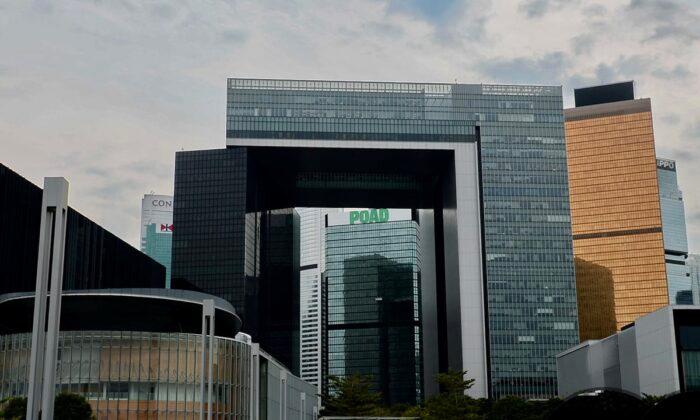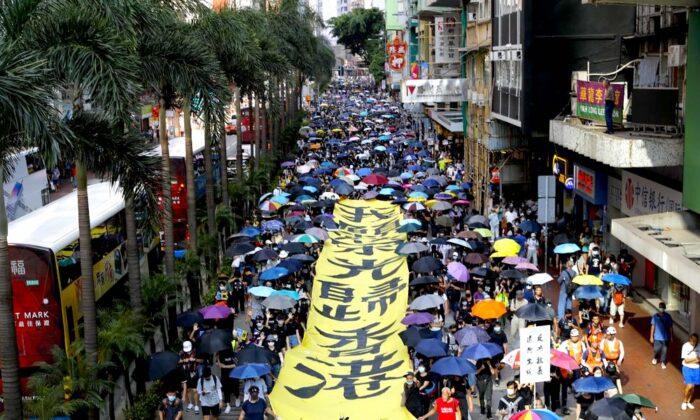The U.S. Department of the State published the 2022 Country Report on Human Right Practices, including a section on China, Hong Kong, Macau, and Tibet, on March 20.
The report pinpointed that in 2022, the Chinese Communist Party continued to violate the 1984 Sino-British Joint Declaration and the Basic Law of Hong Kong, dismantling political freedoms and autonomy in violation of these commitments.
The report referred to the Hong Kong National Security Law multiple times, stating that it could no longer determine if Hong Kong’s civilian authorities could maintain effective, autonomous control over the city’s security services.
The report also underlined that the regime changed Hong Kong’s electoral system to block political opposition Beijing disapproved of from participating in the election.
On May 8, 2022, Hong Kong’s Election Committee selected John Lee, former secretary for security, as the new Hong Kong Chief Executive. Lee, the sole candidate approved by Beijing, secured more than 99 percent of the votes in the pro-government 1,500-member selection committee.
The American administration chastised the Hong Kong government for violating democratic principles and political pluralism. The move was a significant step away from the universal suffrage the Basic Law stated.
The report mentioned the National Security Department of the Hong Kong Police Force, saying that this department was established in accordance with the “Hong Kong National Security Law,” operates under the supervision of Beijing, and allows the embedding of mainland national security personnel in the department.
According to the National Security Law, the department had been allowed to hire trained law enforcement personnel to “assist” in implementing national security duties from any region outside Hong Kong, including mainland China.
The National Security Department had been told to cooperate with Beijing’s National Security Office in Hong Kong to enforce its law.
The report also detailed that the National Security Office would not be held accountable for Hong Kong law and was criticized for contradicting the spirit and practice of the Joint Sino-British Declaration. “It is no longer clear if Hong Kong’s civilian authorities maintain effective, autonomous control over the city’s security services.” The report read.
The report mentioned prolonged pretrial detention was an increasing problem.
As of October 2022, at least 44 individuals charged with national security-related offenses were remanded in custody and awaiting trial for over a year after being denied bail.
The report also documented that 17 of the 47 democratic figures charged under the National Security Law concerning the unofficial 2020 pan-democratic primary election have remained in pretrial detention.
Most of the democrats had been detained since February 2021. The latest trial start date that authorities had set for the case was January 2023, which would result in a pretrial detention of over 700 days for these defendants.
The report mentioned, according to the National Security Law, the Hong Kong police had the right to require anyone who had been charged under national security to hand over travel documents, even if they had not been formally prosecuted.
In addition, the bail barrier in national security cases has been very high. A report in May 2022 pointed out that 75 percent of those accused of national security crimes were denied bail. One of the bail conditions was restricting a defendant’s freedom of speech and association.
Former Legislative Council member Albert Ho Chun-yan was granted bail. However, Ho had been prohibited from publishing, making statements, or acting online or offline, which could be considered violating the national security law or endangering national security.
Ho was also banned from directly or indirectly contacting foreign officials, parliamentarians, and others in any way.
The U.S. State Department, too, addressed its concern about Timothy Owen, appointed UK barrister of Media tycoon Jimmy Lai.
The Hong Kong government then reported it to the regime in an attempt to block foreign lawyers representing in national security cases and requested the PRC National People’s Congress Standing Committee provide an “interpretation” of the law.
On the other hand, Lai’s legal team said the Hong Kong Immigration Department refused to extend Timothy Owen’s work visa to defend Lai in his trial.
The report mentioned that workers’ freedom of association and independent and democratic trade unions had to disband or dissolve due to political repression or worries of political retaliation by the government.
It also refers to the government’s abuse of the National Security Law, the Societies Ordinance, and the Trade Unions Ordinance to suppress independent trade unions.
Many trade unions were disbanded under the pressure of the Hong Kong government and media outlets supported by the Beijing government.
For instance, in May 2022, the Committee of the Union Education Foundation had to cease operation due to political risks. The Hospital Authority Employee Alliance passed a dissolution motion in June of the same year, citing political suppression.
Meanwhile, during the fifth wave of the coronavirus pandemic, the Association of Hong Kong Nursing Staff and Hong Kong Practicing Specialists Association expressed worry about mainland medical staff working in Hong Kong. The pro-Beijing and government-controlled media subsequently attacked the group.
The report also addressed that some human rights activists had noticed that the pro-government people had taken over the Independent Police Complaints Council Committee, which has supervised law enforcement since December 2021.
The U.S. Department stressed that most people on the committee board did not have professional training in law and human rights, which would be detrimental and undermine the effective operation and credibility of the police.





Friends Read Free